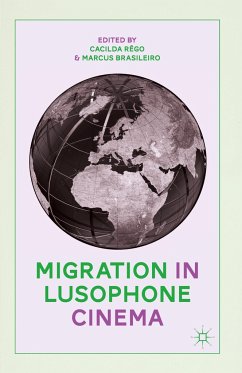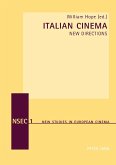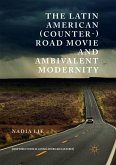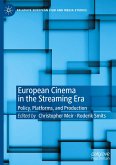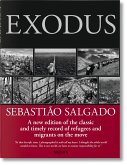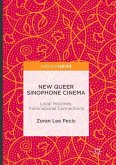Migration in Lusophone Cinema
Herausgegeben:Rêgo, C.; Brasileiro, M.
Migration in Lusophone Cinema
Herausgegeben:Rêgo, C.; Brasileiro, M.
- Broschiertes Buch
- Merkliste
- Auf die Merkliste
- Bewerten Bewerten
- Teilen
- Produkt teilen
- Produkterinnerung
- Produkterinnerung
With more than 250 million speakers globally, the Lusophone world has a rich history of filmmaking. This edited volume explores the representation of the migratory experience in contemporary cinema from Portuguese-speaking countries, exploring how Lusophone films, filmmakers, producers, studios, and governments relay narratives of migration.
Andere Kunden interessierten sich auch für
![Italian Cinema Italian Cinema]() Italian Cinema81,70 €
Italian Cinema81,70 €![The Shawshank Experience The Shawshank Experience]() Maura GradyThe Shawshank Experience60,99 €
Maura GradyThe Shawshank Experience60,99 €![Polish Migrants in European Film 1918-2017 Polish Migrants in European Film 1918-2017]() Kris Van HeuckelomPolish Migrants in European Film 1918-201764,99 €
Kris Van HeuckelomPolish Migrants in European Film 1918-201764,99 €![The Latin American (Counter-) Road Movie and Ambivalent Modernity The Latin American (Counter-) Road Movie and Ambivalent Modernity]() Nadia LieThe Latin American (Counter-) Road Movie and Ambivalent Modernity97,99 €
Nadia LieThe Latin American (Counter-) Road Movie and Ambivalent Modernity97,99 €![European Cinema in the Streaming Era European Cinema in the Streaming Era]() European Cinema in the Streaming Era104,99 €
European Cinema in the Streaming Era104,99 €![Sebastião Salgado. Exodus Sebastião Salgado. Exodus]() Lélia Wanick SalgadoSebastião Salgado. Exodus80,00 €
Lélia Wanick SalgadoSebastião Salgado. Exodus80,00 €![New Queer Sinophone Cinema New Queer Sinophone Cinema]() Zoran Lee PecicNew Queer Sinophone Cinema38,99 €
Zoran Lee PecicNew Queer Sinophone Cinema38,99 €-
-
-
With more than 250 million speakers globally, the Lusophone world has a rich history of filmmaking. This edited volume explores the representation of the migratory experience in contemporary cinema from Portuguese-speaking countries, exploring how Lusophone films, filmmakers, producers, studios, and governments relay narratives of migration.
Produktdetails
- Produktdetails
- Verlag: Palgrave Macmillan / Palgrave Macmillan US / Springer, Berlin
- Artikelnr. des Verlages: 978-1-349-48845-2
- 1st ed. 2014
- Seitenzahl: 248
- Erscheinungstermin: 26. November 2014
- Englisch
- Abmessung: 216mm x 140mm x 14mm
- Gewicht: 317g
- ISBN-13: 9781349488452
- ISBN-10: 1349488453
- Artikelnr.: 45077925
- Herstellerkennzeichnung Die Herstellerinformationen sind derzeit nicht verfügbar.
- Verlag: Palgrave Macmillan / Palgrave Macmillan US / Springer, Berlin
- Artikelnr. des Verlages: 978-1-349-48845-2
- 1st ed. 2014
- Seitenzahl: 248
- Erscheinungstermin: 26. November 2014
- Englisch
- Abmessung: 216mm x 140mm x 14mm
- Gewicht: 317g
- ISBN-13: 9781349488452
- ISBN-10: 1349488453
- Artikelnr.: 45077925
- Herstellerkennzeichnung Die Herstellerinformationen sind derzeit nicht verfügbar.
Nuno Barradas Jorge, University of Nottingham, UK Álvaro Baquero-Pecino, College of Staten Island of The City University of New York, USA Jack A. Draper III, University of Missouri, USA Regina R. Félix, University of North Carolina at Wilmington, USA Nadia Lie, University of Louvain, Belgium Carolin Overhoff Ferreira, Federal University of São Paulo, Brazil Derek Pardue, Wesleyan University, USA Ursula Prutsch, University of Munich, Germany Carolina Rocha, Southern Illinois University Edwardsville, USA Fátima Velez de Castro, University of Coimbra, Portugal Frans Weiser, University of Georgia, USA
Introduction; Cacilda Rêgo and Marcus Brasileiro 1. Imagining Migration: A Panoramic View of Lusophone Films and Tabu (2012) as Case Study; Carolin Overhoff Ferreira 2. Thinking of Portugal, Looking at Cape Verde: Notes on Representation of Immigrants in the Films of Pedro Costa; Nuno Barradas Jorge 3. Outros Bairros and the Challenges of Place in Post-colonial Portugal; Derek Pardue 4. Deterritorialisation Processes in the Portuguese Emigratory Context: Cinematic Representations of Departing and Returning; Fátima Velez de Castro 5. Performing Criminality: Immigration and Integration in Foreign Land and Fado Blues; Frans Weiser 6. Two Hungaries and Many Saudades: Transnational and Postnational Emotional Vectors in Contemporary Brazilian Cinema, Jack Draper III 7. Reverse Migration in Brazilian Transnational Cinema: Um passaporte húngaro and Rapsódia Armênia; Nadia Lie 8. Otherness and Nationhood in Tizuka Yamasaki´s Gaijin I and Gaijin II; Álvaro Baquero-Pecino 9. Cinema, Aspirins, andVultures. A Double Escape from a Global Conflict; Ursula Prutsch 10; European Immigrants and the Estado Novo in Contemporary Brazilian Cinema; Carolina Rocha 11. The Migrant in Helena Solberg's Carmen Miranda: Bananas is My Business; Regina R. Felix
Introduction; Cacilda Rêgo and Marcus Brasileiro 1. Imagining Migration: A Panoramic View of Lusophone Films and Tabu (2012) as Case Study; Carolin Overhoff Ferreira 2. Thinking of Portugal, Looking at Cape Verde: Notes on Representation of Immigrants in the Films of Pedro Costa; Nuno Barradas Jorge 3. Outros Bairros and the Challenges of Place in Post-colonial Portugal; Derek Pardue 4. Deterritorialisation Processes in the Portuguese Emigratory Context: Cinematic Representations of Departing and Returning; Fátima Velez de Castro 5. Performing Criminality: Immigration and Integration in Foreign Land and Fado Blues; Frans Weiser 6. Two Hungaries and Many Saudades: Transnational and Postnational Emotional Vectors in Contemporary Brazilian Cinema, Jack Draper III 7. Reverse Migration in Brazilian Transnational Cinema: Um passaporte húngaro and Rapsódia Armênia; Nadia Lie 8. Otherness and Nationhood in Tizuka Yamasaki´s Gaijin I and Gaijin II; Álvaro Baquero-Pecino 9. Cinema, Aspirins, andVultures. A Double Escape from a Global Conflict; Ursula Prutsch 10; European Immigrants and the Estado Novo in Contemporary Brazilian Cinema; Carolina Rocha 11. The Migrant in Helena Solberg's Carmen Miranda: Bananas is My Business; Regina R. Felix

